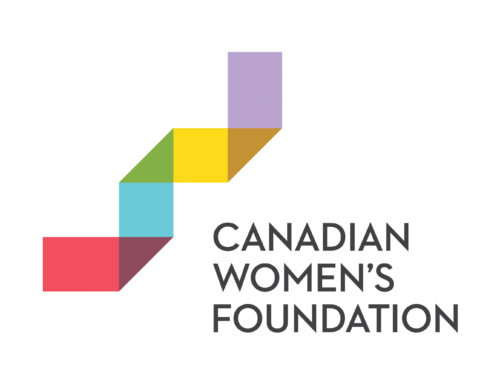
A woman looking to start a business may set out to build a top firm, or she may be motivated primarily by the need to pay rent and support her family after losing a job. For many women in Canada, financial success means becoming financially independent: earning a steady income, or feeling more financially secure, aspiring to move out of low-wage or precarious employment, and much more. We tend to hear about wealth and poverty in broad strokes, but there are many degrees of poverty and privilege.
This year, as we work toward our personal goals, let's keep in mind how our own advancement happens in relation to a broader community. In Canada, women still face systemic barriers to economic development despite a steady increase in labour force participation over the past 30 years. Consider, for instance, that the same three decades saw the proportion of part-time workers who are women hold at 70%. And women who work full-time year-round earn, on average, 72% of what men earn in Canada.
Hurdles also exist in women’s self-employment and business ownership. In 2012, 71% of Canadian women said they would like to start their own business and 83% said having access to mentors would be important to their success. But there’s a sharp contrast between women’s ambitions and the business landscape: A Statistics Canada survey in 2011 showed women were majority-owners of 16% of small- and medium-sized businesses in Canada, sole owners of 14% of small businesses, and sole-owners of only 4% of medium-sized businesses.
Today, over half the service industry in Canada is occupied by women, who also tend to work in sectors such as healthcare, administration, and education. Some of it is choice and some of it is necessity: We know that affordable childcare (or lack thereof), parental leave policies, and caregiving responsibilities also affect women’s employment. In male-dominated industries, such as skilled trades and technology, women face barriers to entry but have room to succeed through on-the-job supports, shifts in workplace culture, and mentorship.
The Canadian Women’s Foundation is dedicated to funding economic development programs that help women to launch or improve their business, access jobs in skilled trades and technology, and gain work experience in a social purpose enterprise.
Programs that focus on women’s needs and offer holistic supports—such as childcare, low-interest microloans, business coaching, and peer support—can help women find stable employment and create sustainable livelihoods.
In 2016, let’s resolve to be drivers of our own success – and others’. Here are four ways you can take action this year to support women’s economic advancement in Canada:
1. Learn more about women’s poverty and the gender wage gap in Canada.
2. Find out about the Canadian Women’s Foundation’s approach to selecting and funding programs.
3. Join a national conversation about women’s economic empowerment on Facebook and Twitter.
4. Make a donation and invest in programs supporting women on their journeys out of poverty and into financial independence.
Learn More
- Understanding women’s poverty in Canada—and taking action
- Women’s poverty is everyone’s business
- How two Alberta grantees are adapting to an economic downturn
Take Action
- Join GEN1. Become a monthly donor and help us build the first generation free of violence against women.
- Sign up for our e-newsletter to have our latest stories and resources sent to your inbox.
- Follow us on Facebook and Twitter to join a national conversation on gender equality.







Leave A Comment
You must be logged in to post a comment.